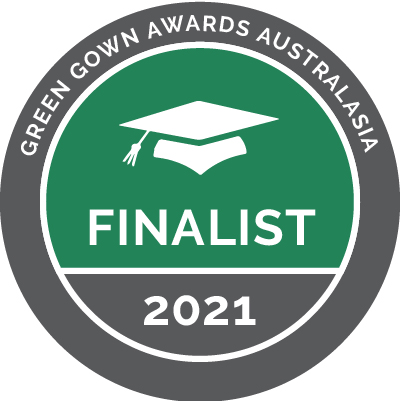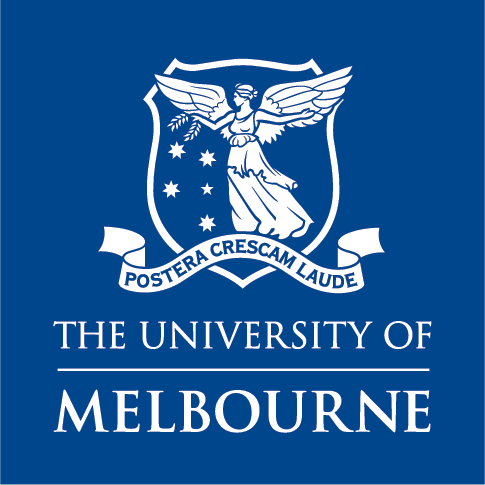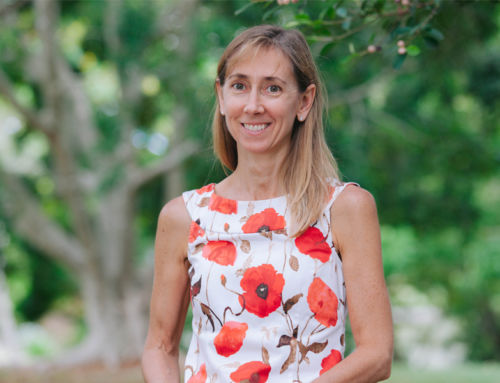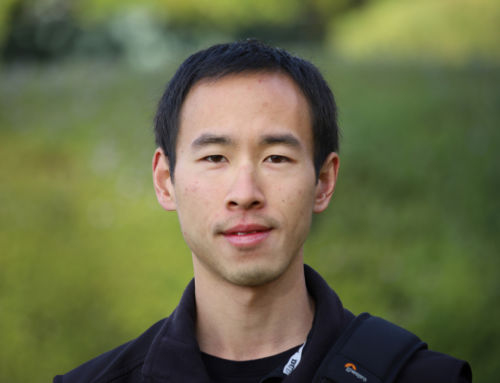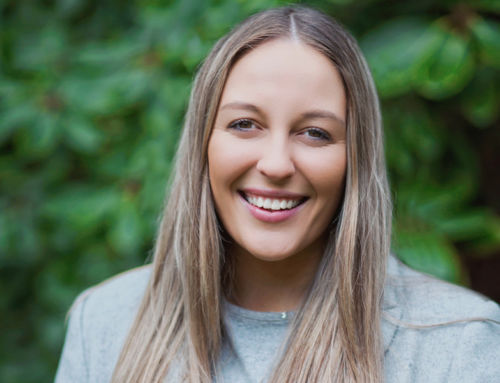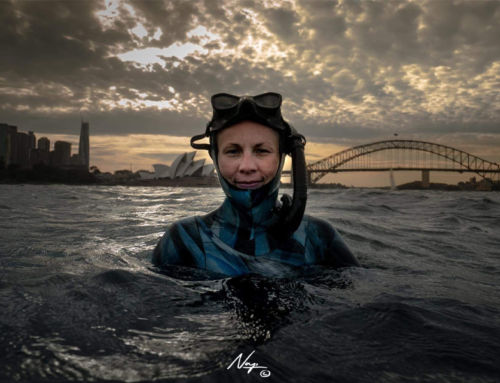The University of Melbourne
Harriet Deans is an Early Childhood Teacher and Researcher at the University of Melbourne Early Learning Centre (ELC). She holds a Bachelor of Environments (Urban Planning and Design), Post Graduate Diploma of Teaching (Secondary) and a Master of Education (Early Childhood Teaching). She has been committed to embedding sustainability across the ELC since 2014, creating a Learning in Nature and Community Connections Program, Eco-Centric Curriculum and establishing the ELC Green Impact Team, the Eco Heroes and engaging as an Ambassador within the UoM Global Leaders in Sustainability Program.
Over the past 7+ years, she has dedicated her time to engaging her colleagues, the children she teaches and their families in learning about how sustainability can be embedded in daily life and living. Her work is directed towards empowering others to develop the skills and values to care for each other and the environment.
> A closer look
Education for Sustainability is central to Harriet’s teaching and personal philosophies. As an Early Childhood Teacher at the ELC for the past 6 years, Harriet has taught over 200 children and has had a reach of over 1000 children with impacts reaching the whole-of-centre. Harriet worked alongside other teachers to create a Learning in Nature & Community Connection Program (LNCCP) in 2014 that has been toured by other teachers from educational services and was included in ethics approved research in 2018. The Eco Hero concept grew out of the LNCCP; merging children’s interest in superhero pop-culture and the protection of the environment. Some ELC Parent Testimonials about the learning due sustainability at the ELC include:
- “Prior to coming to ELC, at home, we had never even talked about the environment, and it really is everything that the wonderful ELC teachers have taught him that he has taken on board with gust!” – Ada Cheung (ELC Parent 2016 – 2019).
- “The ELC is the gift that keeps on giving in so many ways. The ELC embedded in Wren a love of nature from your teachings, and we all feel her interest in it will last forever…. it’s just our job now to nurture it.” – Georgie Cleary (Parent 2017 and 2019).
- “Leo has thoroughly enjoyed his time at the ELC. He loved learning about trees, going on adventures and building the roof top garden (which I was happy to help with) Thanks tones ELC.” – Andrew Walker (Parent 2017 – 2019).
- “Patrick loved the community connections, all of the values and thinking he explores are lived everyday through Patrick’s interactions with others and the environment.” – Christina Gregic (Parent 2016 – 2019).
Since 2014, Harriet has led major initiatives under the umbrella of the Green Impact Program and more broadly, leading the Sustainability banner within the University of Melbourne Early Learning Centre (ELC). She has early publications in Early Childhood Journals, and has been a part of Premier’s Sustainability Award, Green Gown and City of Yarra Sustainability award submissions. Harriet’s enthusiasm for leading the ELC teaching and administration staff through the Green Impact Program was contagious and her conscientious efforts to systematically record hundreds of ELC individual initiatives earned the GOLD Award both for participation and being the overall winner in 2018. Without her leadership this high level of success would not have been possible. Harriet also developed and submitted the Green Gown Award Australasia application in 2018, which was shortlisted as a FINALIST for the project ‘Children’s Voices for Greening Melbourne’. Harriet designed the 2-minute video to view here.
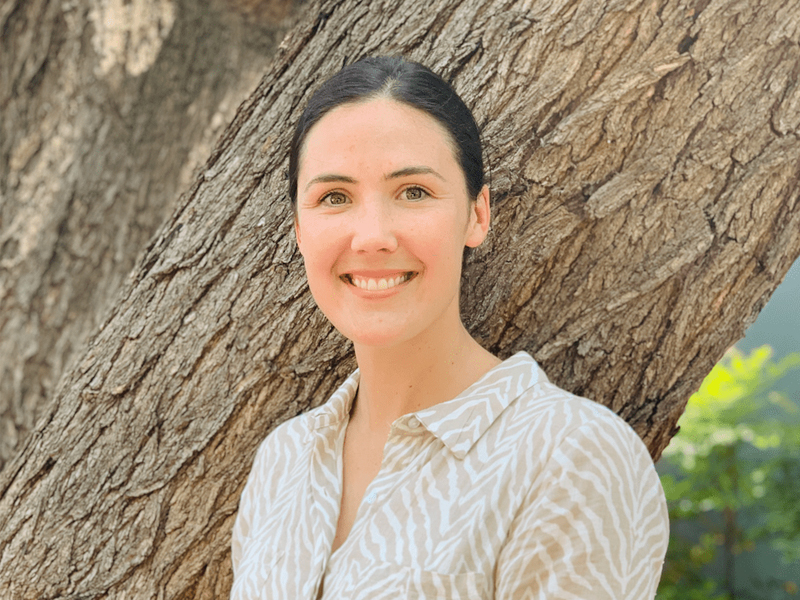

Another significant outcome for Harriet was her successful application to the 2018 UoM Green Fund Project for the building of a unique play environment which she described as an ‘Eco Tunnel’. This application was successfully awarded $6,500. Harriet received recognition internally and externally of the University, winning the Engagement Innovation Award at UoM’s 2019 Green Impact Awards and the national Green Impact Australasia Awards in 2020. Harriet was also recognised as an inaugural Green Impact Ambassador in 2019 for her ongoing contribution over three years and was shortlisted for the UoM Staff Champion Award. She led 92 Actions (742 points) for the Eco Heroes Team in 2019. Since 2018, Harriet has presented on sustainability at three conferences; UoM University Services Professional Staff Conference ‘Our World Our Future’ 2018, Australian Early Childhood Education Conference 2018 and Cultures of Thinking Conference 2019 where she showcased her work in the area of Education for Sustainable Development. She has successfully published on this work in the ‘International Journal of Research in Environmental Education’. She also delivered professional development to members of the Environmental Education in Early Childhood organisation in 2020 on ways to engage children in sustainability in Early Childhood Settings.
In 2019, while on maternity leave, she also travelled to Brisbane to attend the Climate Reality Training Corps, led by Al Gore, to become skilled in the area of Climate Change. There, Harriet spent time connecting with like-minded professionals, receiving information on the latest data, trends, issues and solutions relating to Climate Change. Following the training she developed a presentation for the ELC teachers and children, provided each year and embedded into staff inductions (password: climateELC), that contained information from the training and continues to discuss her current achievements and challenges with her Climate Reality peers. Her current focus is to embed the Sustainable Development Goals into the curriculum while harnessing children’s imaginations and innovative ideas connected to the natural world and sustainability. Harriet’s profile as a sustainability leader and Green Impact Ambassador continues to grow as she engages in a wide range of professional and scholarly activity. She is a highly productive individual and a fine ambassador for sustainable development at the ELC and the University more broadly, including engagement with Environmental Education in Early Childhood Organisation (presentations, professional development), University of Melbourne Students and Scholarly Services (encouraging other services to engage in sustainability) and Land for Wildlife (registering her family farm). Currently, Harriet is a Student Ambassador for the University of Melbourne Global Leaders in Sustainability Program (Wattle Fellowship), where she volunteers her time to provide UoM students with ideas, knowledge and support around creating projects that will benefit society. She has also been working closely with team members from UoM Campus Management around the potential for Solar Panel Installation at the ELC in 2021/2022. This project includes raising awareness amongst staff members of the University’s commitment to energy: “The University of Melbourne is continuing to transform energy usage and reduce its carbon footprint through energy projects on and off campus”. Energy data was obtained from University Utilities, Heritage information was obtained from Heritage Victoria and UoM Campus Management has been contacted. Future work will also include a change over from Gas to electricity to reduce all emissions on the ELC site.
> Impact and benefits
Harriet has driven sustainability activities, specifically Green Impact, across the ELC (2017 to 2021). Under Harriet’s guidance and support, the ELC team has implemented hundreds of actions & initiatives. These actions have led to many positive long-term social and environmental impacts including:
- All teaching and learning programs at ELC are underpinned by sustainable and environmental values.
- Providing professional development opportunities to staff that are connected to the environment and sustainability.
- Providing children with environmental knowledge that they take with them through their life (a number of children who were taught by Harriet continue to be leaders in sustainability)
- Promoting child agency and communication of child voice in the community.
- Promoting child engagement with the community through experiences such as the Learning in Nature and Community Connections Programs.
- Creating positive community impacts including rubbish collection (approximately once per term per class), planting experiences (twice per year), environmental sign making (twice per year), knowledge sharing, charity donations (twice per year), environmentally focused exhibitions (once per term).
- Raising awareness around positive environmental actions and behaviours within the ELC parent community, broader University community and within the Education arena.
- Acknowledging children’s creative capacities and challenging the community to think about how children’s ideas can be taken into consideration when envisioning better environmental and community-oriented futures.
- Connections with various departments, for teaching and learning purposes, at the University of Melbourne, including visits to the Systems Garden, Living Pavilion and Sustainability Advocates Meetings.
Additionally, Harriet’s purposefully focused planning, strong leadership, intentional teaching and connections with knowledgeable community and family members have led to overall growth in understandings of and responsibility for matters of environmental concern in the school, home and community environments. Harriet has led and inspired others to embed environmental learning and practices in everyday teaching practices, including:
- protection of existing indigenous flora and fauna (Yarra River Bank); planting indigenous plants in degraded areas (Yarra River Bank); creating environmental signage for display near the Yarra River.
- growing and harvesting edible plants from the ELC Community Garden.
- identification and taking action to address pollution in streets, laneways and the river including plogging excursions.
- recycling household items and op shop visits.
- implementing water and energy saving actions in children’s and staff bathrooms & kitchen.
- making wise paper for artwork and implementing paper saving strategies.
- designing t-shirts and green bags with environmental messages to raise awareness.
- engaging in composting in the ELC Community Garden (collecting children’s and teacher’s organic waste everyday & encouraging staff to bring organic waste from home to deposit within the ELC.
- contacting the City of Yarra on matters of sustainability including recycling and green waste collection.
- promoting ‘nude food’ to reduce plastic and packaging on-site at the ELC.
- creating ‘eco art’, including the identification of the Eco-Hero icon which was included in a selection of children’s environmental messages which were presented at the ‘Hexagon Project, Philadelphia, USA’.
- being involved in maintaining and creating habitats for animals and insects (playground possum boxes, logs in playground for insect habitat, insect hotel sculpture, green roof, eco tunnel).
- Designing ‘green’ spaces for play including a rooftop garden and eco tunnel.
- Creating an environmental ‘pop art’ exhibition ‘Children’s Voices for Greening Melbourne’ in Melbourne City.
> Leadership and engagement
It is widely recognised that it is our obligation as humans and as a society to leave behind a better world, not only for the human race but for the plants and animals that existed long before us. Harriet has educated, guided and mentored her team and colleagues to ensure consistency in environmental role modelling and worked tirelessly to reinforce the values of environmental stewardship amongst her place of work. Harriet has thought of creative and innovative ways to engage her team and her broader community, and she has designed and implemented projects and programs that go over and above her role and responsibilities as an Early Childhood Teacher.
Distinctive actions led by Harriet include:
- Children’s Voices for Greening Melbourne (CVGM) Exhibition 2017, 2018, 2019, 2020, 2021: Individual and collaborative artwork for an exhibition at Chapter House Alpha60 (2017, 2018, 2019), ELC Laneway (2020) and Melbourne School of Design (2021). The exhibition celebrated the development of the children’s ‘eco’ attitudes, behaviours, skills and knowledge and shared inspirational imaginings of a more sustainable city including ‘Rooftop Gardens’, ‘Plants growing on every level of city building, and ‘apartments of green for eco-heroes’. The exhibition aimed to spread awareness of the importance of a green and healthy Melbourne city. The Department of Water Land Environment and Planning also featured the CVGM within their publications.
- Eco Hero Action Week 2019/2021: The ELC children, teachers and families engaged in a variety of eco-focussed actions including RideOrWalk2ELC morning breakfasts, local community rubbish collection, planting native grasses, mindful nature drawing, nude food campaign and Clothing & Book Swap. This week-long celebration increased the reach and impact (20 Staff and 189 children/families) of the sustainable actions and encouraged the participants to integrate environmentally focussed practices into their daily lives. The activities resulted in positive community action, child agency and environmental stewardship and demonstrated how effective collective action can be at changing habits to meet the needs of the planet.
- Eco Tunnel Project 2019: The Eco Heroes were awarded $6,500 from the Green Fund to design and build an Eco Tunnel, a creative, innovative and child-focused ‘green’ project that combined environmentally sensitive design with children’s play and movement in the outdoors.
- Grasses Project 2020/2021: A collaborative project engaging with the University of Melbourne Living Pavilion, specifically Kirsten Parris and Zena Cumpston.180 children planted and nurtured indigenous native plants (Wallaby and Kangaroo Grasses) that were then planted at the Living Pavilion and Collingwood Children’s Farm, Melbourne.
- Collaboration with the Abbotsford Riverbankers: Teachers and children have collaborated with the Community Organisation, Abbotsford Riverbankers to learn about Environmental Stewardship and Ecological Restoration. Plants that were nurtured at the ELC have also been donated to the Abbotsford Riverbankers as a way to support environmental regeneration of the Yarra River banks. See more at @abbotsfordriverbankers Instagram
- Unimelb Eco Heroes Social Media 2020/2021: sharing of continent related to the ELC Green Impact Team and sustainability practices relating to early childhood education, tertiary education and life and living. See @unimelbecoheroes Instagram for more information.
- Journal Publication 2020: Education for Sustainable Development in a Virtual Classroom publication in Environmental Education Victoria Journal Eingana. To promote teaching for EsD in early childhood and beyond.
- Early Learning Centre Solar Panel Project 2021: The development of a Solar Panel Installation Plan at the ELC. Building staff members awareness of the University’s commitment to energy, researching the heritage of the ELC building, accessing Energy data and investigating the different types of solar have been elements of this project. Harriet has also included renewable energy as a part of her curriculum.
Harriet has worked hard to motivate her team and connect with other teams through Green Impact and sustainability communication via meetings, zooms video calls, emails, Facebook posts, notices and signage and face-to-face conversations. Harriet has attended additional training sessions, presented her research and practices through conference forums and showcase presentations and documented her work in the form of photographic and video productions. As a teacher and researcher Harriet is committed to progressing and challenging environmental understandings, to prompt people to rethink what meaningful contributions they can make to society; locally, nationally and globally. She is a strong believer in collective action as a way to achieve the most outcomes and continues to work with her teams on matters of environmental importance.
> Wider societal impact
The positive wider societal impact and value that has occurred due to Harriet’s contributions throughout both the Green Impact Program and more broadly include:
- The development of an environmental teaching and learning program (the Learning in Nature Program at the ELC) that is underpinned by an Ecocentric Curriculum (Deans, 2016) and that promotes learning in, about, for, from and with the environment (Palmer, 1999).
- Developing children’s, parents and the communities understanding that we are all ‘stewards of the earth’.
- Promoting children as active citizens, who feel empowered to take action in response to the protection and restoration of the natural world.
- Providing children with the ecological skills, knowledge and understanding to take responsibility and ownership for their learning and became problem seekers, problem solvers and action takers.
- Developing collaborative and collective action and a community of learners that build on existing ideas to create new understandings of the natural world.
- Supporting colleagues to engage in professional development that informs their personal decision making and action taking around sustainability.
- Sharing and mobilisation of information and skills relating to the enactment of sustainability within educational organisations and life more broadly.
- Awareness raising around projects, activities and experiences that can be embedded into different organisations and educational spaces.

